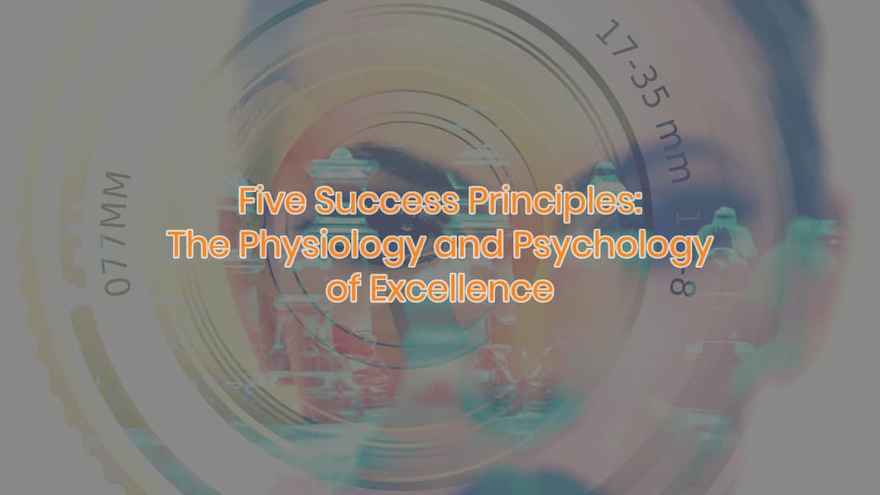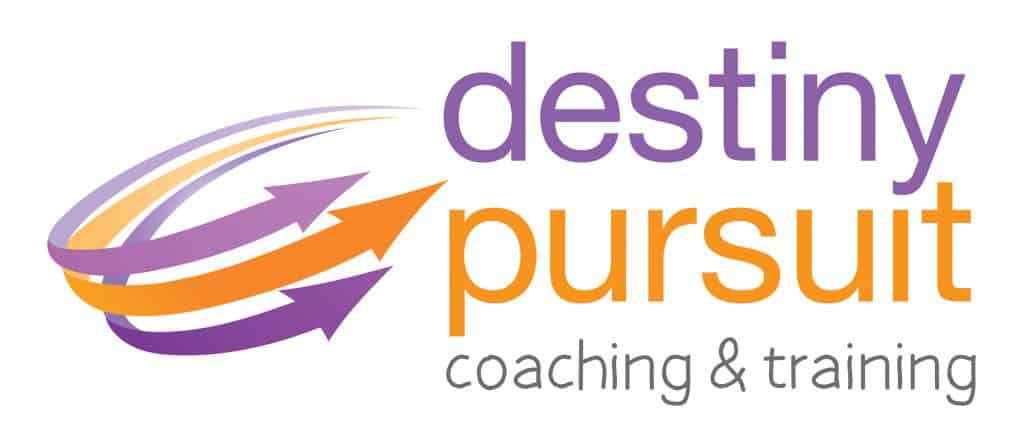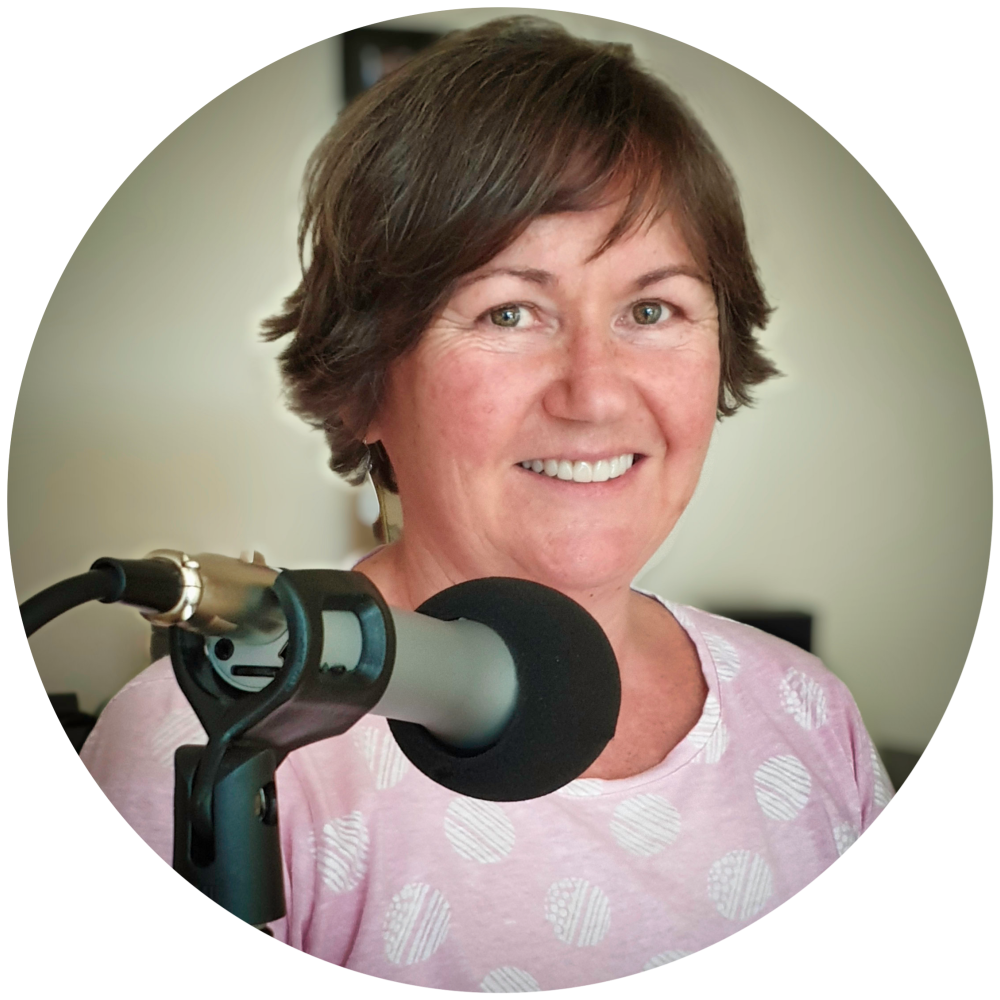Physiology and Psychology of Excellence - NLP Matters, Episode #014

We have noted that as successful people we need to invest time, effort and imagination into some key areas to build and achieve our success.
Firstly, we ensure we meet number one of the Five Success Principles – knowing our outcome. This means we are clear about where we are going, our goal. Secondly, we know that no goal can be reached without targeted action. We are not only taking action, but we are taking specific actions that will bring us closer to our goal. Thirdly, we use our sensory acuity so we can check to see if we are on course, and fourthly if we are not totally on track we have the behavioural flexibility to change what we are doing which means we get back on track. Together, these strategies combine to form a powerful framework for success. However, there is one remaining piece!
The fifth and final of the success principles highlights how successful people have a way of being that supports their success. In NLP, we call this the Physiology and Psychology of Excellence. This principle brings home the importance of not just what you do to achieve success, but also how fundamentally it is who we are being, that is the difference that makes the difference.
Listen to the podcast to learn more.
Listen to the Podcast
Here are some key takeaways from this episode:
The Physiology and Psychology of Excellence
- Physiology refers to anything that has something to do with the body, that is the way in which the body and its parts function - our physical make up, our physical health, our posture and the way we hold ourselves, our gestures, facial expressions, breathing, even down to our voice.
- Psychology refers to the mind – our attitudes, beliefs, values, fears, likes, dislikes, our internal dialogue. This includes thinking and emotions as well as how the brain uses language to construct and develop our experiences of reality.
- The Physiology and Psychology of Excellence are inseparably entwined. They are actually part of the one whole.
The Physiology of Excellence
- In psychology and even psychiatry changing the physiology of the body is used to change our psychology. Whether that be as simple as having clients exercise to produce endorphins or using chemical medications to change the body’s chemistry. All these approaches utilise the principle that changing your physiology will change your psychology and your results.
- Our mind and our body are so interconnected. The communication between them is a two-way street. Our mind automatically interprets what our body is doing and then has our body follow the instructions.
- Having a physiology of excellence also means taking care of our physical wellbeing, taking care of ourselves so we can be our best and give our best efforts on the road to our success.
The Psychology of Excellence
- According to a psychologist, Carol Dweck, there are two different kinds of mindsets - the growth mindsets and fixed mindsets.
- Growth mindsets give people the ability to see themselves as capable of change or growth, whilst fixed mindsets cause people to view themselves as fully realised or unchanging.
- Having a growth mindset leads to far higher achievement than having a fixed one.
- All thoughts and emotions are part of the tapestry of being human and being whole and complete, and that negative thoughts and emotions at one level are a clue as to how our unconscious mind is attempting to take care of us and keep us safe.
- The question is always, “How is it working for you?”. Ask yourself how is this behaviour really serving me? It is only when we discover how a behaviour is serving us (even if we don’t like it) that we can choose a new way to meet that need, which means then you can make the change.
- Grit is another characteristic of a growth mindset. It means displaying an unrelenting resilience – an attitude of no matter what the world throws at us we’re up for it. Those who display grit recognise that their thoughts directly impact their emotions and that emotions are transitory. They don’t last very long. Also, they know that emotions are, for the most part, irrelevant to their goals.
- If a sabotage strategy starts to appear gritty, successful people recognise it for what it is, change the channel and move on. They shift focus to what is important in terms of their goals and act on that. This doesn’t mean that we are ignoring or repressing emotions like sadness, grief, and anger. It does mean getting curious about how these emotions are serving us and allowing these emotions to pass through us in a way that means they don’t have control over the targeted actions to achieve our goals.
The Art of Modeling in NLP
- To achieve the physiology and psychology of excellence we need, all we need to do is find a model who has what we want, and then we model them.
- When we are modeling another’s physiology and psychology, we might also say we are modeling who they are being.
- Looking closely at the BE-DO-HAVE model, we certainly know how important BEING is especially in contrast to just DOING, DOING, DOING. Doing stuff is important but who we are being is just as critical to our success.
- Adopting the physiology and psychology of success, including modeling from those who already have what we want, gives us a great way to develop our skills in BEING who we need to be, so we get to HAVE the success we want.
Adopting a physiology and psychology of excellence allows us to focus on who we are being when we are going for our goals. Model from those who have already got what we want, be the person we need to be, and develop that growth mindset!
In our next episode, we’ll wrap up the Five Principles of Success, bringing it all together and really nail down the fundamentals behind your success.
Listen to the Podcast
Joanne Clark
Joanne Clark is an Internationally accredited Master Trainer of NLP who has been delivering NLP training since 2011. Being on her feet in front of training rooms is where Jo loves to be and her passion for inclusive and immersive training that delivers outstanding learning outcomes is apparent to everyone in her training rooms. On average Jo delivers 140 days of training per year in addition to online webinars, guest speaker events and group coaching.
“NLP is at the core of all my training and coaching, it is at the core of who I am, how I interact and connect with people. I am absolutely passionate about spreading the NLP tools across the planet as I endeavour to support Robert Dilts’s vision of Creating a world to which people want to belong.” Joanne Clark
Certified Master Trainer of NLP; Master Practitioner NLP, Hypnotherapy & Matrix Therapies; Performance Coach; Cert IV Coaching; Advanced Practitioner in Coaching; Cert IV in Business; BA(Hons); Majors in Sociology and Psychology; Parent Education Leadership Training (PELT) Certificate; Mother of four children; Private Pilot (PPL); Diploma in Life Coaching


0 comments
Leave a comment
Please log in or register to post a comment